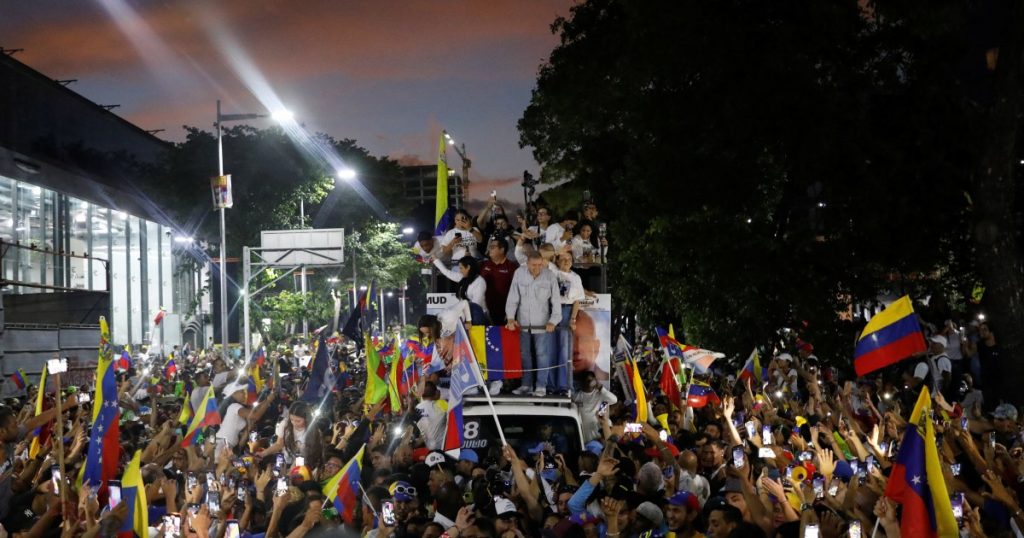Venezuela is on the brink of one of the most pivotal elections in recent memory, with incumbent President Nicolas Maduro facing steep odds as he seeks a third term against opposition candidate Edmundo Gonzalez Urrutia. Polls indicate that Maduro is trailing by nearly 40 points, reflecting widespread voter exhaustion over the country’s economic crisis and political repression. Critics have raised concerns about whether Maduro will accept defeat if he loses at the polls, given his history of using his power to suppress rivals through arrests and disqualifications from running for office. The election is scheduled for July 28, which coincides with the birthday of the late President Hugo Chavez, Maduro’s mentor.
Maduro’s declining popularity can be attributed to the severe economic crisis that has plagued Venezuela since the mid-2010s. The collapse of oil prices, hyperinflation, and economic mismanagement have led to dire living conditions for many Venezuelans, prompting millions to leave the country in search of better opportunities. The imposition of sanctions by the United States has further exacerbated the situation, triggering widespread desperation among the population for relief from the economic hardship. Despite these challenges, Maduro has maintained a base of support by continuing Chavez’s social programmes and adopting an antagonistic stance towards the US.
The opposition, represented by the Unitary Platform coalition, aims to unseat Maduro and improve relations with the West to alleviate the economic crisis. However, the electoral process leading up to the election has been marred by accusations of unfairness and repression. Popular opposition figures like Maria Corina Machado have been barred from running, while others have been detained on questionable charges. This has raised doubts about the legitimacy of the election and the government’s commitment to a free and fair democratic process. The international community, particularly Western countries like the US, has condemned these actions and called for respect for the will of the voters.
Venezuela’s elections are taking place under severely constrained circumstances, characterized as “competitively authoritarian” by some experts. While there are multiple opposition candidates on the ballot, the process has been marred by government interference and restrictions on opposition figures. The outcome of the election remains uncertain, with fears that Maduro may refuse to step down if he loses, potentially leading to further unrest and instability in the country. The delicate transition period between the election and the transfer of power adds to the uncertainty surrounding Venezuela’s political future.
In response to concerns over the election process and human rights abuses, the US and other governments in the region have imposed sanctions on Venezuela. However, there are indications that the US is considering a more nuanced approach in the hopes of encouraging progress towards a free and fair election. The Biden administration recently reinstated some sanctions following the crackdown on opposition figures, but it has also shown a willingness to engage with the Venezuelan government in the hopes of easing economic conditions and reducing the flow of migrants seeking refuge. Regional leaders like Brazil’s Lula da Silva have called on Maduro to respect democratic processes and uphold the will of the voters, underscoring the international pressure on Venezuela to ensure a transparent and legitimate election outcome.















